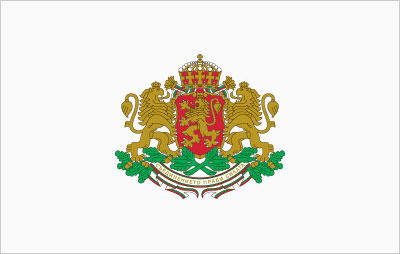The government approved projects for three territorial cooperation programs
The government approved projects for three territorial cooperation programs
By Ministry of Regional Development and Public Works
The Council of Ministers approved the draft Interreg VI-A Romania-Bulgaria 2021-2027 Cross-Border Cooperation Program. The total budget is 207.5m euros. Of these, 163, 5 million are provided by the European Regional Development Fund (ERDF). The program will fund joint projects under four priorities: A Well-Connected Region, A Greener Region, A More Educated Region and Integrated Territorial Development.
The program territory of Interreg VI-A Romania - Bulgaria 2021-2027 covers eight Bulgarian districts - Vidin, Montana, Vratsa, Pleven, Veliko Tarnovo, Ruse, Silistra and Dobrich. On the Romanian side, it includes seven Romanian regions - Constanta, Calarasi, Giurgiu, Teleorman, Dol, Mehedinţi and Olt. Beneficiaries can be national, regional and local authorities, universities, research centers, associations, NGOs, civic associations and networks, and others.
The main goal of the program is to ensure the sustainable and innovative growth of the regions, in accordance with the new EU cohesion policy for the period 2021-2027. h The Territorial Agenda 2030, the European Green Pact, etc.
With its decision today, the government agreed with the content of the program "Interreg VI-A IPA Bulgaria - Northern Macedonia 2021-2027" and approved the commitments of our country as a member state.
With an indicative budget of € 31,152,400, the program will fund projects aimed at achieving three specific objectives, divided into three priorities.
The first will implement measures to improve the protection and conservation of nature, biodiversity and environmentally friendly infrastructure, including in urban areas, and reduce all forms of pollution. The program will support investments in the construction of green areas or their development in urban and suburban areas, sustainable urban drainage systems, naturalized reservoirs for torrential rains, bio retention zones; support for joint strategies and action plans for the development of new instruments, as well as for the transfer of decisions between relevant stakeholders and others.
The second priority is aimed at improving connectivity. The funds provided for it will be targeted in the strategic project for a new border checkpoint between Strumyani and Berovo on the border between Bulgaria and the Republic of Northern Macedonia.
The implementation of measures under the third priority aims to promote integrated social, economic and environmental development, promote cultural heritage and increase security in areas other than urban. Investments here will be focused on supporting small and medium enterprises and their technological modernization, building an effective product development process, improving mobility, developing integrated regional tourism products and more.
The scope of the program includes the districts of Blagoevgrad and Kyustendil in Bulgaria and the Northeastern, Eastern and Southeastern regions of the Republic of Northern Macedonia, where a total of nearly 950 thousand people live.
Beneficiaries will be civil society, micro, small and medium-sized enterprises, local authorities and regional structures of the central administration, non-governmental organisations, academic, scientific and social institutions.
Both programs are to be presented to the European Commission.
On today's assignment, the Council of Ministers also approved the draft of the ESPON 2030 Territorial Cooperation Program with a total budget for the period of EUR 60 million. Of these, 48 million euros are from the European Regional Development Fund, and the rest are provided by the countries as national co-financing. A little over 311 thousand euros is the national contribution that Bulgaria must provide. The program is to be submitted to the European Commission.
ESPON 2030 covers all 27 Member States of the European Union, as well as Norway, Switzerland, Iceland and Liechtenstein as partner countries. It supports the implementation and effectiveness of EU cohesion policy, the development and implementation of other sectoral policies and programs financed by the European Structural and Investment Funds and national and regional development policies. The results of the program are used in the preparation of territorial development and planning programs, including those for cross-border, transnational and interregional cooperation. The research and activities of the program support the processes of the European Green Deal, the Fair Transition, the EU Recovery Plan from the COVID-19 crisis and the EU Territorial Agenda 2030.
The Territorial Cooperation Management Directorate at the Ministry of Regional Development and Public Works will continue to perform the functions of a National Authority with regard to the program.




